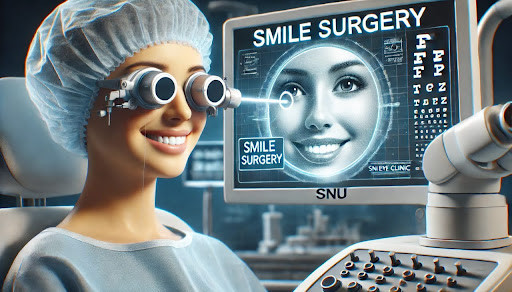Maintaining healthy vision throughout life requires more than just reacting to eye problems—it involves proactive, preventive care. With rising screen time, environmental pollutants, and age-related conditions, our eyes are more vulnerable than ever. According to ophthalmology professionals, early intervention and everyday habits play a crucial role in preserving long-term eye health. By understanding risk factors, adopting protective strategies, and scheduling regular eye smile surgery exams, individuals can greatly reduce the likelihood of developing serious vision issues.

One of the most fundamental pillars of preventive eye care is routine eye examinations. Ophthalmologists recommend that adults undergo a comprehensive eye exam every one to two years, even if they have no noticeable symptoms. These exams can detect early signs of glaucoma, cataracts, diabetic retinopathy, and macular degeneration—conditions that often progress silently before affecting vision. For children, eye screenings are essential to catch refractive errors or developmental concerns that could impact learning. Regular check-ups allow professionals to track changes in vision, monitor eye pressure, and provide personalized recommendations for care.
Lifestyle choices have a profound impact on eye health. A balanced diet rich in nutrients such as lutein, zeaxanthin, vitamin C, vitamin E, and zinc supports retinal health and may help prevent age-related macular degeneration (AMD). Leafy greens, carrots, eggs, citrus fruits, and fish high in omega-3 fatty acids are all beneficial. Hydration is also essential to avoid dry eye symptoms, particularly for those who spend long hours in air-conditioned environments or in front of screens. Furthermore, avoiding tobacco is critical, as smoking significantly increases the risk of cataracts and optic nerve damage.
Digital eye strain is now a major concern for people of all ages due to increased reliance on screens for work, education, and entertainment. Ophthalmologists emphasize the 20-20-20 rule as a simple preventive measure: every 20 minutes, look at something 20 feet away for at least 20 seconds. This helps reduce eye fatigue and promotes blinking, which keeps the eyes moist. Adjusting screen brightness, maintaining proper lighting, and using anti-reflective glasses can also lessen digital strain. For children, limiting screen time and encouraging outdoor play helps reduce the risk of developing myopia.
Protecting eyes from harmful ultraviolet (UV) rays is another key component of preventive care. Prolonged exposure to UV light can increase the risk of cataracts, macular degeneration, and even skin cancer around the eyes. Ophthalmology professionals advise wearing sunglasses that block 100% of UVA and UVB rays whenever outdoors, regardless of the season. Wide-brimmed hats offer additional protection. Similarly, using protective eyewear during sports, home improvement projects, or exposure to chemicals can prevent accidents that could cause permanent damage to the eyes.
Managing chronic health conditions is also vital to preserving vision. Diseases such as diabetes and hypertension can lead to serious eye complications if left unchecked. Diabetic retinopathy, in particular, is a leading cause of blindness in adults, but early detection and strict blood sugar control can mitigate its progression. Similarly, maintaining healthy blood pressure can reduce the risk of hypertensive retinopathy. Ophthalmologists stress the importance of regular monitoring and interdepartmental coordination between primary care providers and eye specialists for patients with systemic health conditions.
In conclusion, preventive eye care is an essential part of overall health and wellness. By adopting simple, expert-recommended habits—like routine eye exams, a nutrient-rich diet, screen moderation, UV protection, and chronic disease management—individuals can safeguard their vision well into old age. Ophthalmologists agree that prevention is far more effective and less costly than treatment after vision has deteriorated. With the right approach and awareness, everyone has the power to maintain healthy eyes and clear vision for life.
